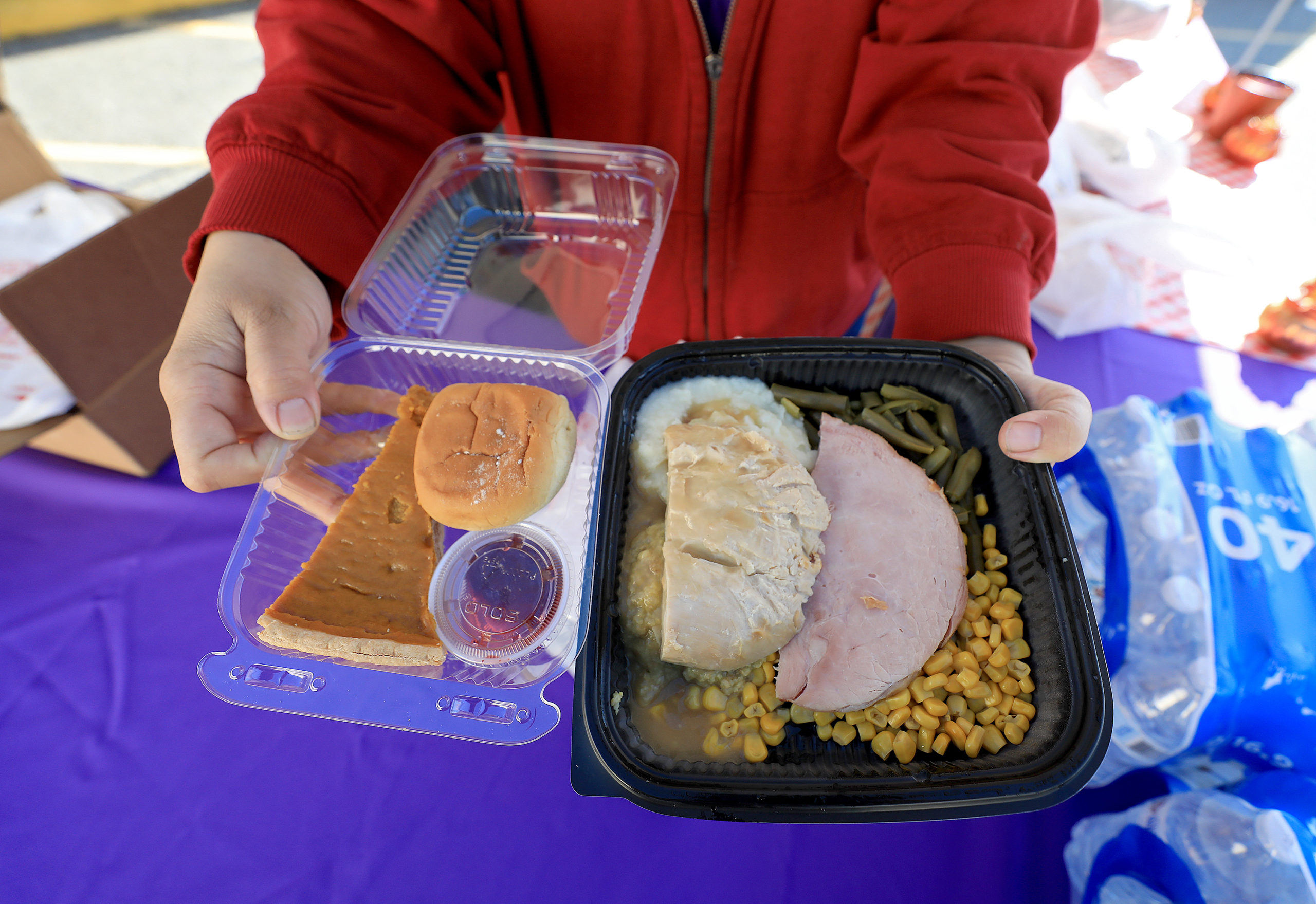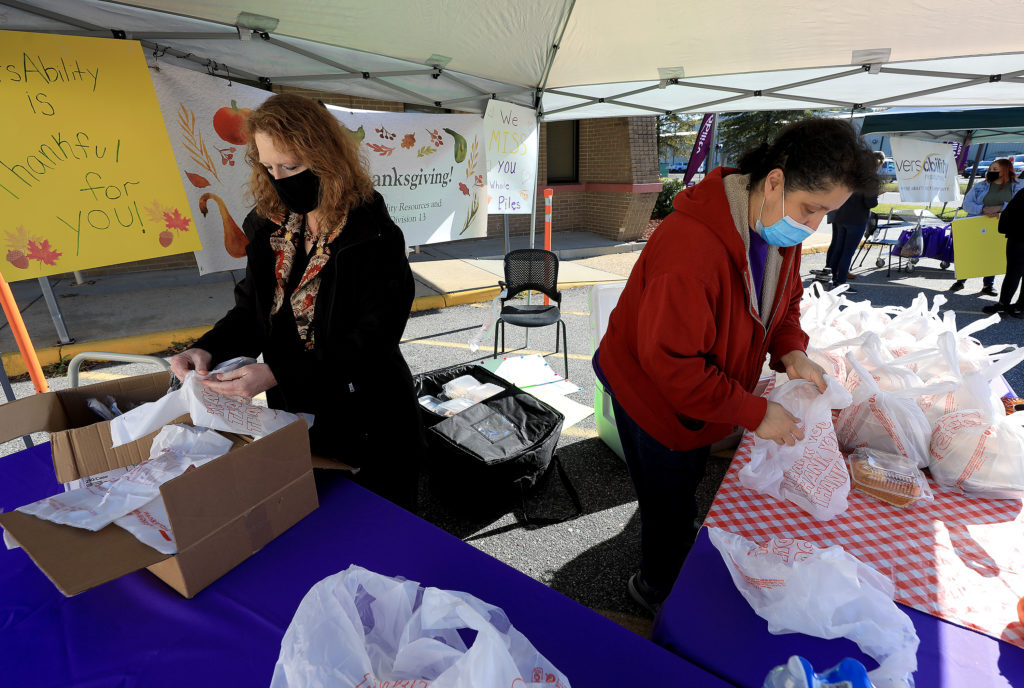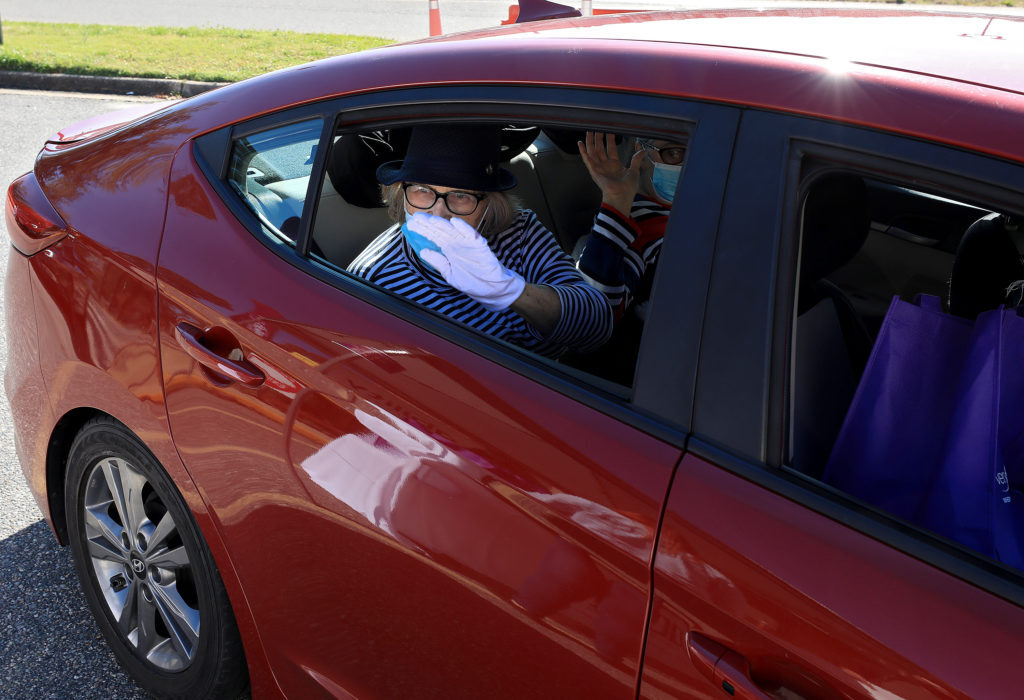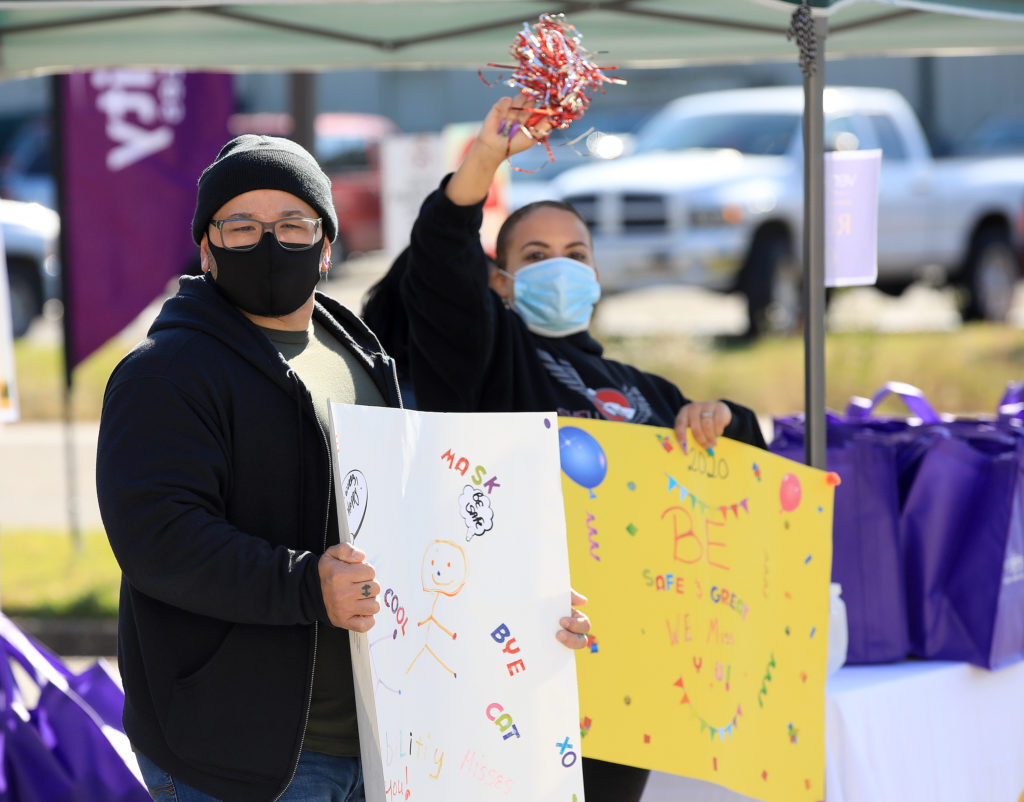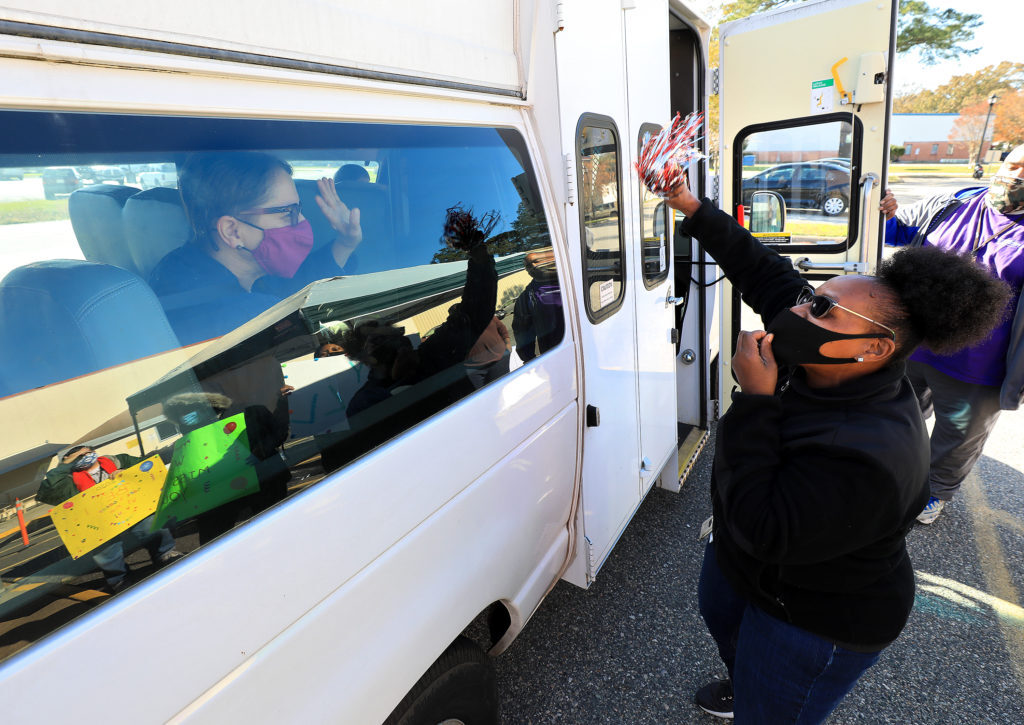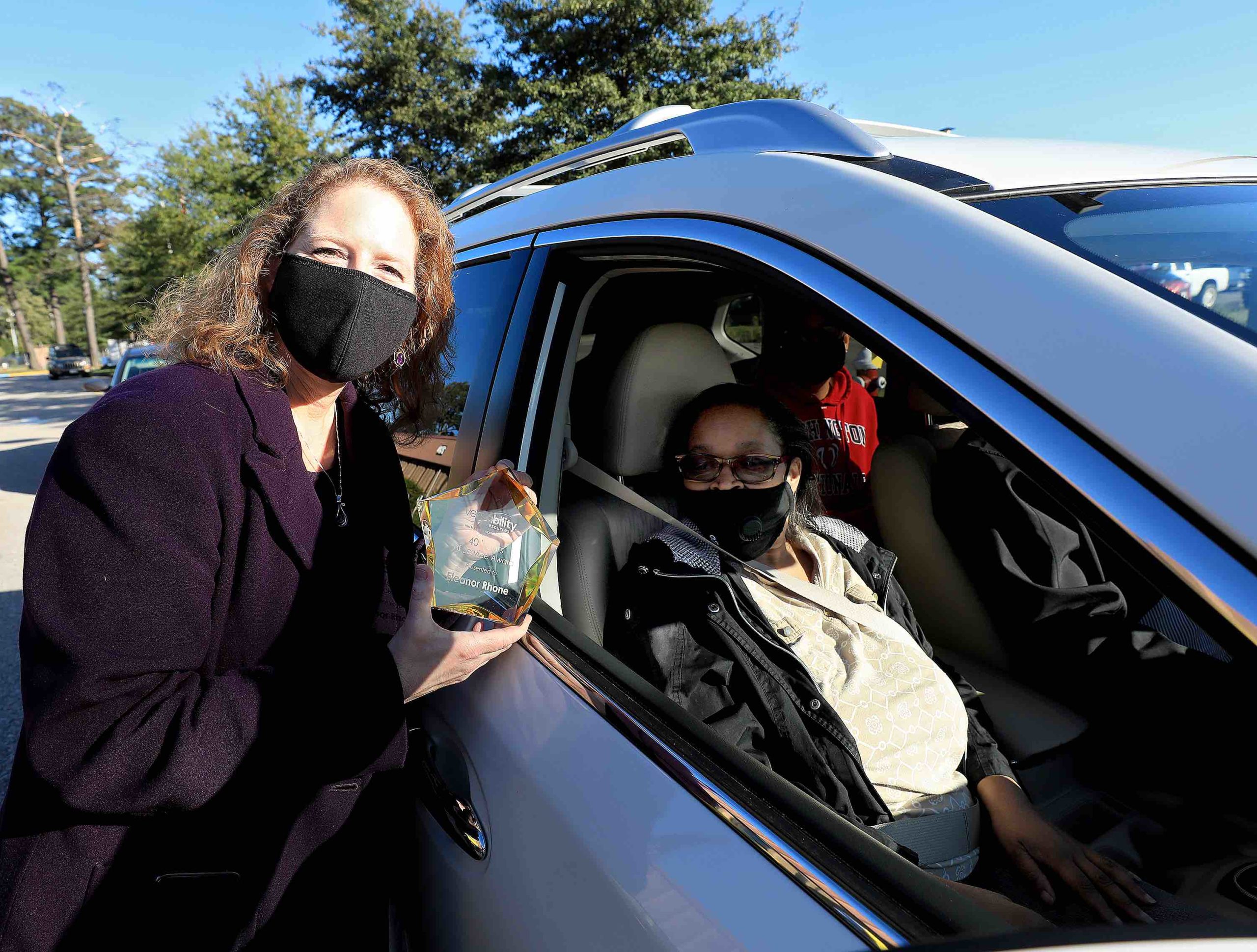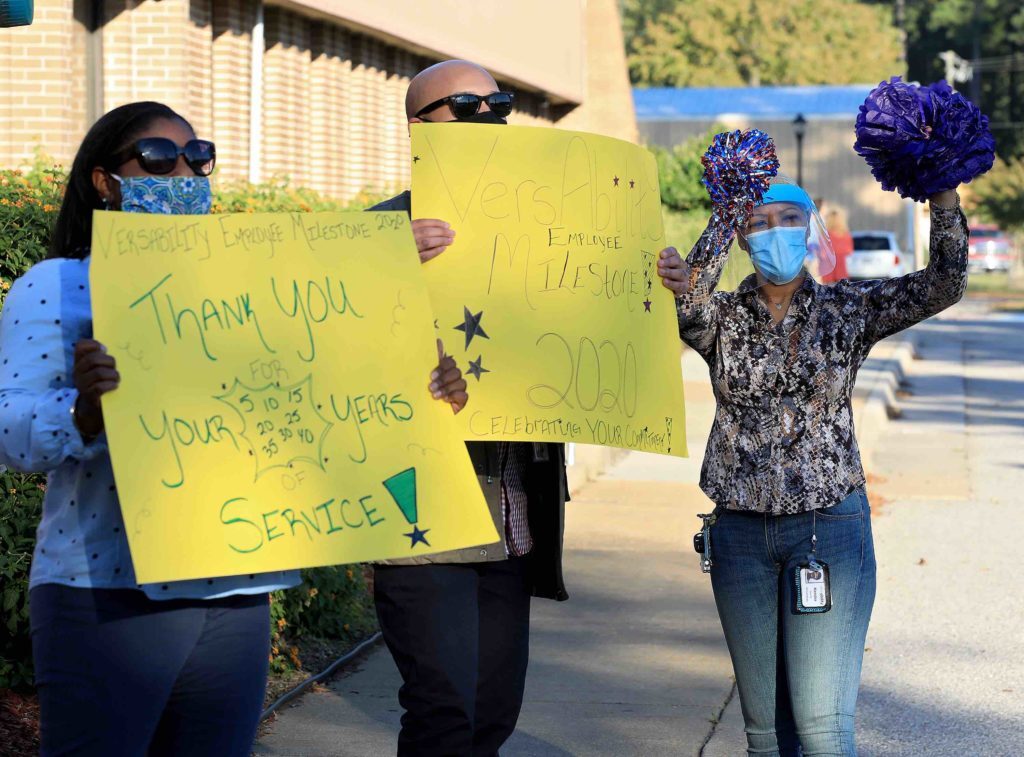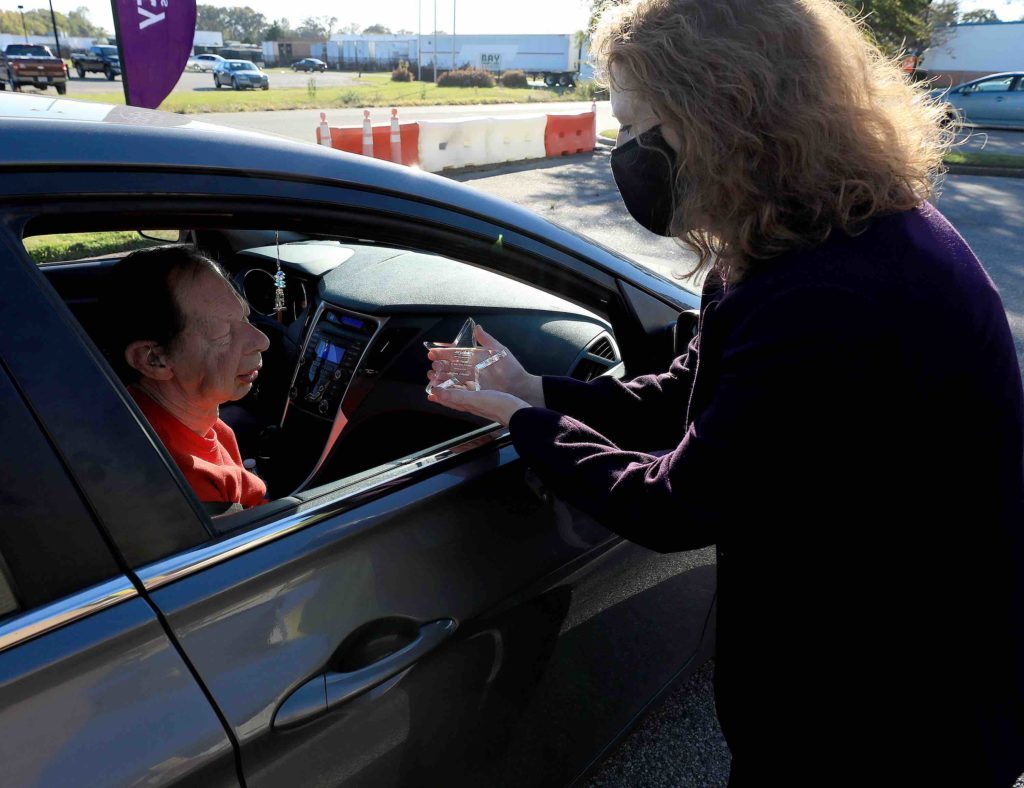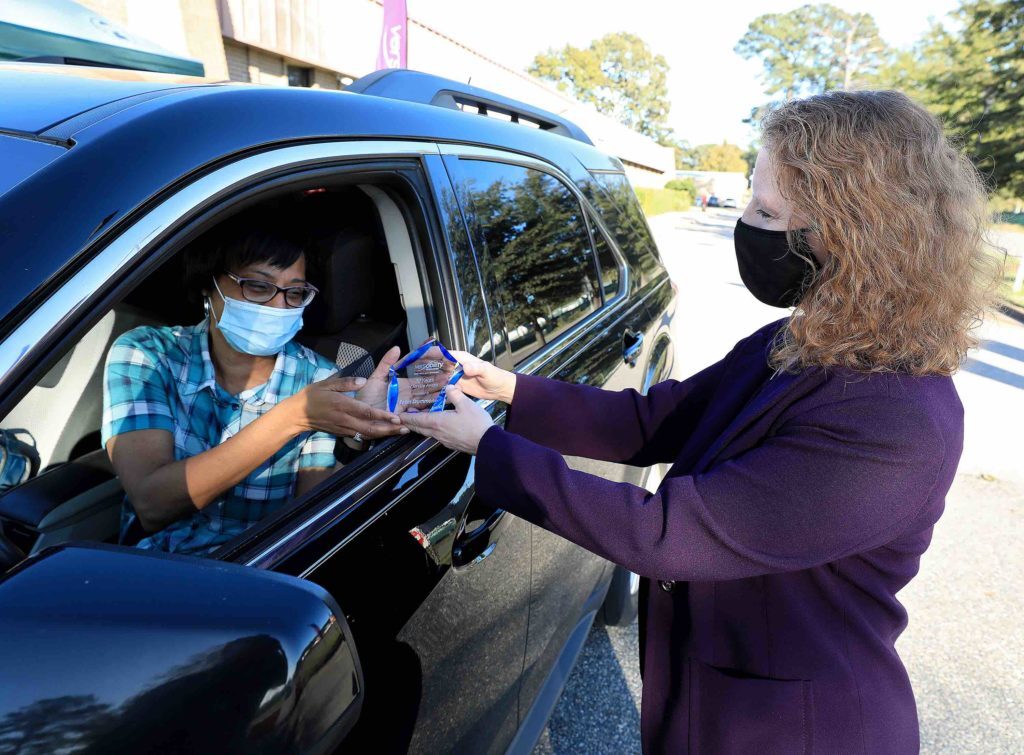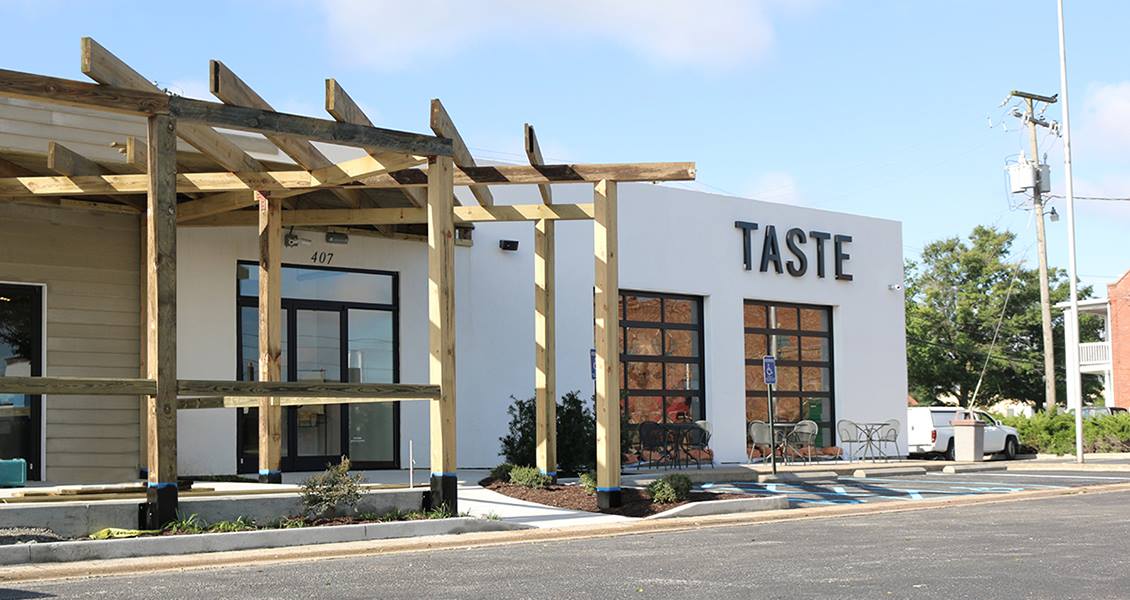“Miss Robin!”
Robin Drummond never knows when she’s going to hear her name. This time she was in a parking lot, enjoying a car parade to celebrate her son’s graduation from Bethel High.
“Miss Robin!” the same voice shouted. “You’re not going to believe it, Miss Robin. Let me show you.”
Opening a car door, the parent revealed a grown boy inside, grinning ear to ear.
“I don’t know what we would have done without your program.”
Those moments drive Drummond, in her 30th year at VersAbility Resources, a non-profit that serves people of all ages with disabilities to ensure they live, work and thrive in the community.
Drummond started working at what was then the Association for Retarded Citizens, on Sept. 4, 1990, just a few months removed from graduating with a degree in social work from James Madison University.
When she started at JMU, she planned to be a veterinarian until realizing that the sight of blood spooked her. Thumbing through the college catalog to switch majors, the second-semester freshman stumbled on social work and decided, “I think I can do that.”
An internship with a population that included individuals living with disabilities prompted her to pursue that first job, where she was hired as an instructor — later renamed direct support professional. She transitioned into an employment specialist position before moving into a residential social worker role.
Nearly a decade into the job, Drummond discovered her niche, a program called EPIC, which stands for the Early Prevention and Intervention for Children Program. EPIC supports parents and families with infants or toddlers experiencing developmental delays by coordinating tailored therapy to help every child reach his or her potential.
Success stories like the one in the parking lot remind her of the difference the program makes in both a parent’s life and a child’s future.
“I have pictures of some of my babies, my families, of them reaching milestones,” says Drummond, today the EPIC manager. “It means the world.”
Free developmental screenings are provided for any child living in Hampton and Newport News under the age of 3. Parents can seek an assessment for a multitude of reasons; Drummond requested one herself when her son, Michael, wasn’t talking as early as expected.
Diagnoses made in utero — cerebral palsy, fetal alcohol syndrome, neurologic disorders — can lead a parent of a newborn to EPIC, but so, too, can less dire circumstances.
All it takes is a 25% delay in one developmental area to qualify a child for services. A child can also qualify due to a condition that could lead to a developmental delay in the future.
“That category is probably where we see the most children,” Drummond says. “It could be a vision impairment, a hearing impairment; it could be decreased muscle tone, the autism spectrum disorder.”
Any parent with a concern should know this: It’s never too early for early intervention.
“We try to get to the little one before they form some of their habits,” Drummond says. “The earlier we can see the child and start to work the family, the earlier the family can start to implement different techniques and strategies to address the area of concern. Research shows it works. It just works.”
For example, if the concern is that a baby isn’t taking in the proper nutrition during bottle feeding, a therapist can advise on different feeding techniques related to the type of nipple, the size of the nipple, even a more efficient way to hold the bottle.
“It all works together,” Drummond says. “If that baby had low muscle tone in their mouth and never received the support to show them how to drink more effectively from the bottle, in the end it could result in the baby having more difficulty with communicating and using different types of words.”
Sometimes toddlers learning how to crawl or walk position their feet incorrectly. Braces on ankles can act as stabilizers or shoe inserts might help. Drummond stress neither modification means it has to be forever, but that early intervention is what puts the child on the right path.
When Drummond first started at EPIC, parents brought their child to the office for therapy. Today the staff of nine she manages delivers therapy in the child’s natural environment.
“We go to their homes, we go to Grandma’s house, we go to daycare,” she says. “We go to Chick-fil-A. We really push the coaching model, which is very different from the medical model.”
A therapist at an outpatient clinic might work with a child one-on-one while a parent waits. EPIC empowers parents and other family support to take the lead.
“In our process, the parent is involved. They tell us what they would like to work on when the therapist visits,” Drummond says. “We incorporate the parents, so it is not the therapist doing all of the work.”
That way the work continues after the therapist appointment. The time between appointments when the parent and child work together is how progress is made.
“We push the coaching interactive model,” Drummond says.
Today most physicians embrace the concept of early intervention. Previously, a doctor might have chosen to make a referral when a child grew to be 2 or even 3.
Parents are more know knowledgeable, too, thanks to a plethora of online resources.
“Our parents feel stronger because they have researched it for themselves,” Drummond says.
What hasn’t changed for Drummond three decades after she filled out a paper application for her first job is this, she loves to help people. She owns her own collection of keepsake photos of children who were once babies with a disability who today are achievers as adults.
A couple times a month, someone will stop her and ask, “Did you used to go out to people’s houses and help with kids?”
“Nine times out of 10 it was me,” Drummond says. “That just means so much.”
EPIC alters lives.
“All of our kids we are serving are our future doctors and lawyers and teachers and nurses and entrepreneurs,” she says. “We are helping families provide their children the building blocks for their development.”
Drummond wants parents to know EPIC offers multiple resources they need to ensure their child thrives. She admits COVID-19 presents challenges. Like so much of life today, services are virtual for the time being.
“COVID hasn’t stopped us,” she says. “We meet with our families on the phone or virtually.”
Drummond encourages any parent with a concern to reach out to EPIC.
“We’re here to support our families if they have any concern about how their child is developing. Even if they have a question. We have pre-development screenings.
“We’re here to help.”
To speak with a representative from the EPIC program, please contact Dianne Fennell at 757-896-8457 or dfennell@versability.org.

